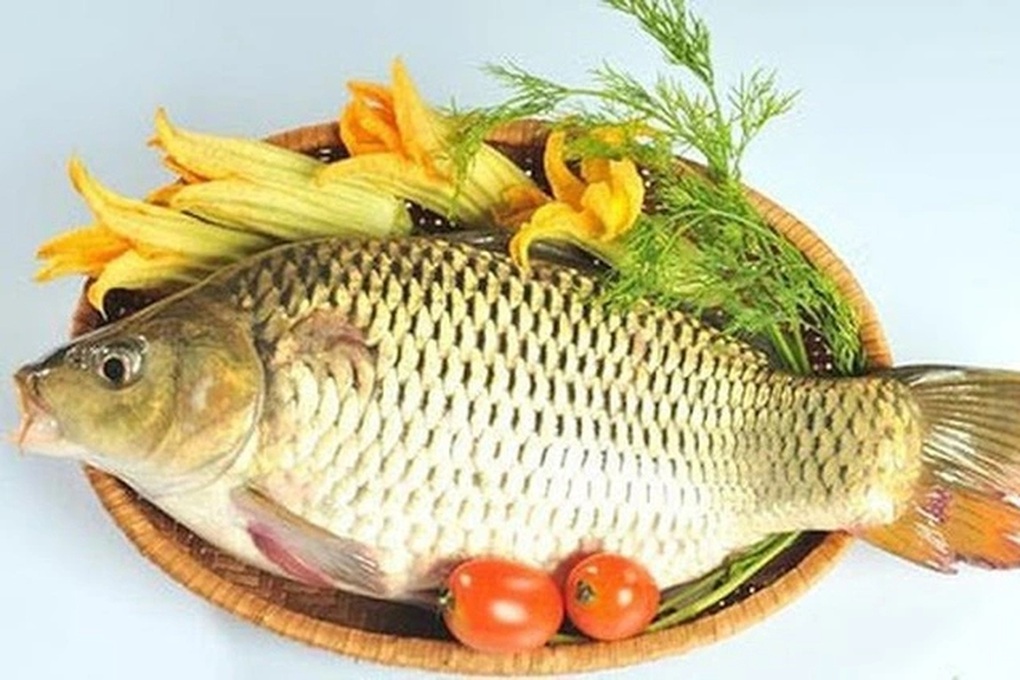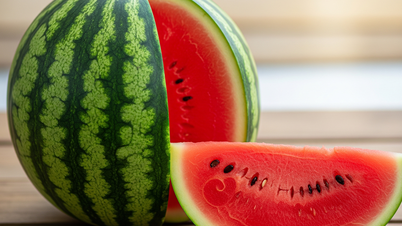When it comes to protein-rich foods, salmon is always the first thing that comes to mind for many people thanks to its reputation as a "superfood" for health.
However, few people know that carp, a wild fish, familiar on Vietnamese dinner tables, has nutritional value that is not inferior to salmon, even has outstanding advantages in terms of minerals and a price suitable for every family.
Impressive protein content, comparable to salmon

Carp is rich in nutritional value (Photo: Getty).
According to the United States Department of Agriculture (USDA) nutrient database, 100 grams of carp contains 22.9 grams of protein. This level is equal to, or even higher than, some expensive marine fish such as salmon and tuna.
Notably, research published in the Journal of Food Composition and Analysis confirmed that the protein in carp contains a balanced ratio of essential amino acids that are easily absorbed, helping to support muscle development and maintain health, especially important for children, the elderly or patients who need to recover their physical strength.
Rich in minerals and vitamins important for the body
Not only rich in protein, carp is also a valuable source of minerals. According to the USDA, 100g of carp provides:
- 531mg phosphorus: An important mineral for bone structure.
- 427mg potassium: Helps stabilize blood pressure and maintain heart function.
- 52mg calcium and 38mg magnesium, along with trace elements such as iron, zinc, copper, selenium.
In particular, carp also contains vitamin A to help improve eyesight, vitamin B6 and B12 which are necessary for the nervous system and blood formation, as well as vitamin C which helps strengthen the immune system.
A study by the Medical University of Warsaw (Poland) published in Nutrition Research showed that supplementing carp 2-3 meals per week helps improve blood lipid indexes, reduce bad cholesterol (LDL) and increase good cholesterol (HDL), thereby reducing the risk of cardiovascular disease.
In oriental medicine, carp is considered a healthy food. Specifically, carp has the effect of nourishing the kidneys, benefiting sperm, reducing pain, fighting inflammation and improving cardiovascular health. In particular, carp is also considered a food that has a positive effect on men's reproductive health.
In addition, carp is also used in many traditional Chinese medicines. Carp is used to treat headaches, stomachaches, digestive disorders, coughs and colds. Medicines made from carp are often used to detoxify, strengthen the immune system and improve health.
According to the National Institute of Nutrition, an adult man who is sedentary should eat 70-100g of fish per day (about 400g of fish per week, no more than 4 meals per week). As for those who are very active, they will need to eat more fish, about 500g per week (at least 100g or 140g per day).
Familiar dishes, easy to prepare, affordable prices
Not only nutritious, carp meat is also favored by many people because of its natural sweetness, firm flesh, and not too fishy. This type of fish is the main ingredient in many traditional dishes loved by Vietnamese people such as: braised carp with pickled cabbage, carp porridge or steamed carp with soy sauce.
Carp is a freshwater fish that is easy to raise, adapts well to different climatic conditions, and is commonly raised from mountainous areas to plains. Thanks to that, carp is widely sold in traditional markets and large and small supermarkets across the country. The price of carp is also much "softer" than imported fish.
Compared with salmon, carp has a clear advantage in price and popularity.
Carp is a source of high-quality protein, rich in minerals and vitamins necessary for all ages. Using carp to replace part of red meat in the weekly diet will help balance nutrition, reduce the burden on the cardiovascular system and contribute to improving health.
Source: https://dantri.com.vn/suc-khoe/loai-ca-viet-bo-khong-kem-ca-hoi-gia-chi-bang-15-20250629183634592.htm






























































































![[OCOP REVIEW] Bay Quyen sticky rice cake: A hometown specialty that has reached new heights thanks to its brand reputation](https://vphoto.vietnam.vn/thumb/402x226/vietnam/resource/IMAGE/2025/7/3/1a7e35c028bf46199ee1ec6b3ba0069e)













Comment (0)